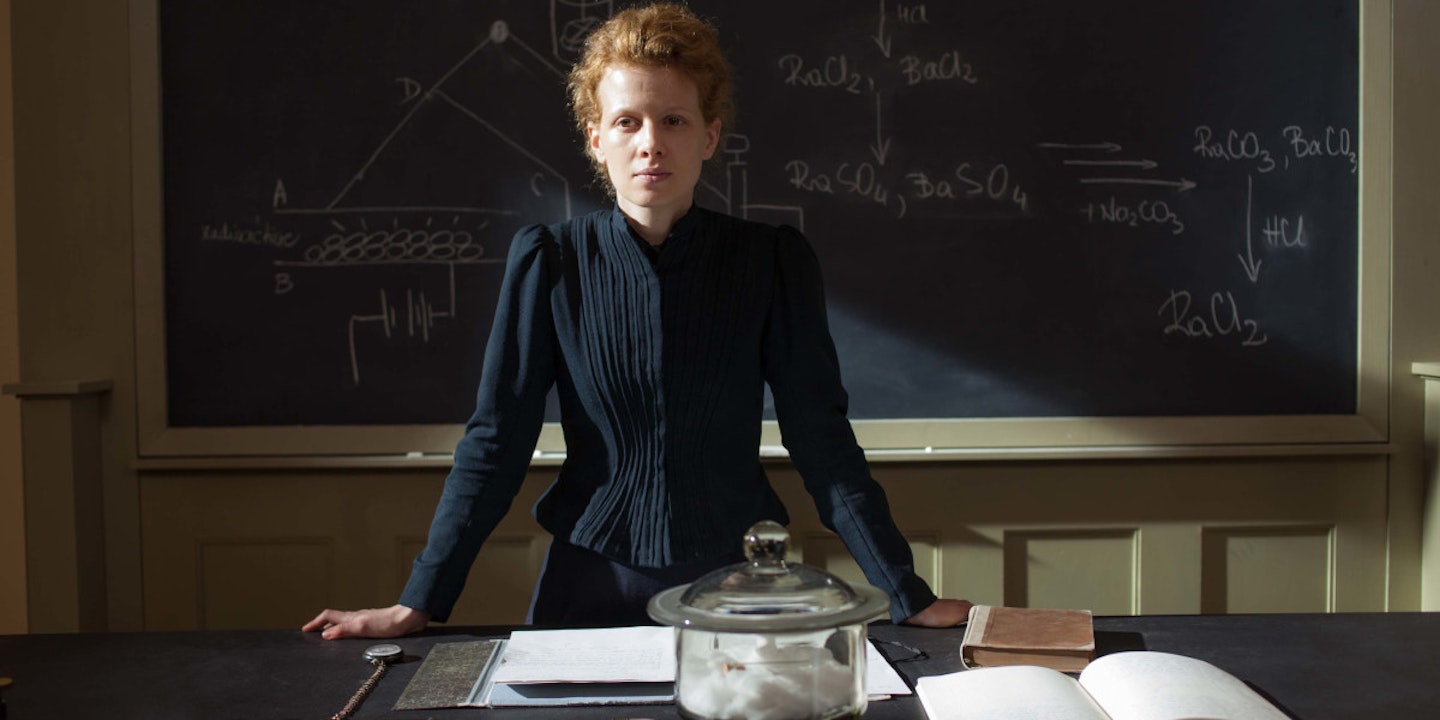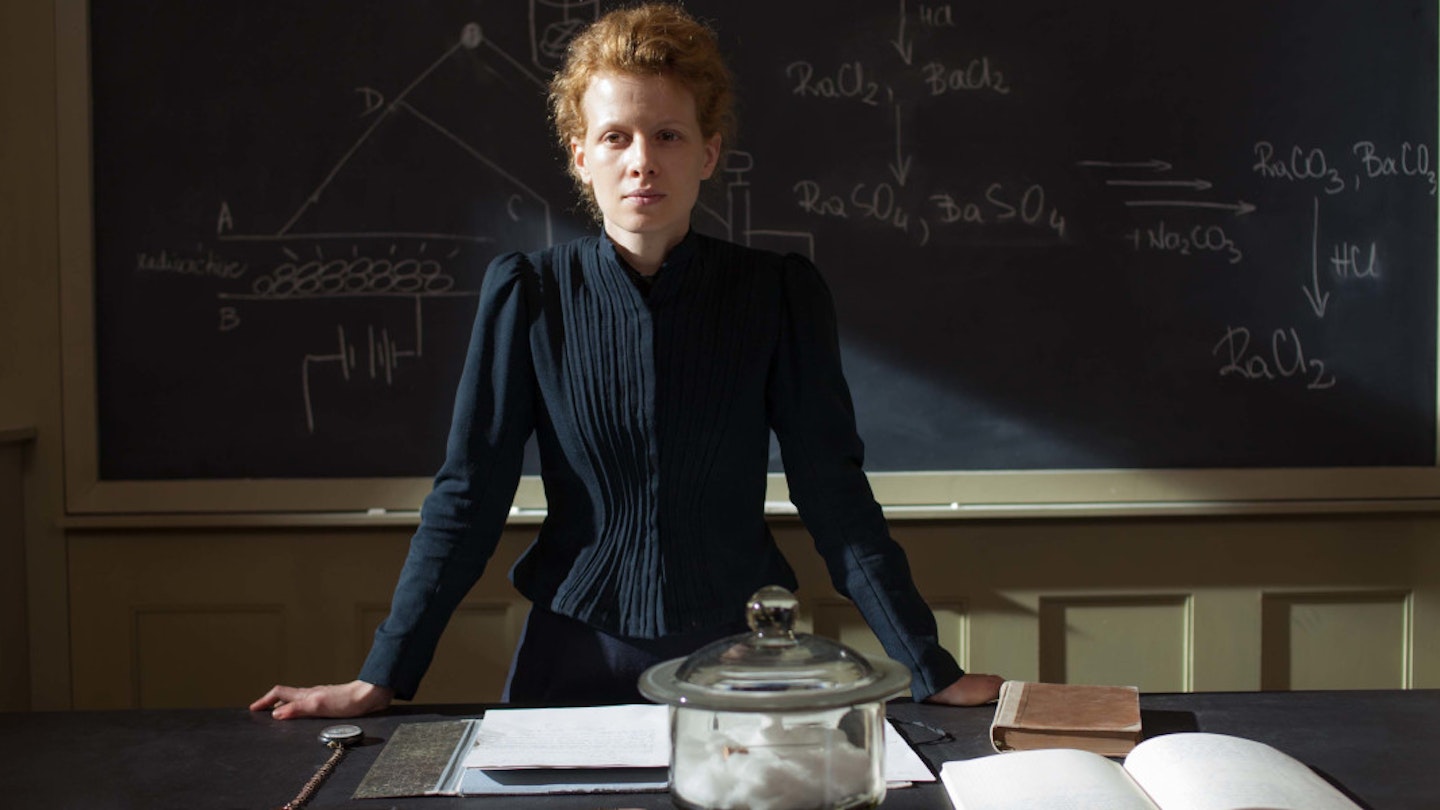
Teeters on the verge of novelettish melodrama.
With terrestrial television seemingly allergic to old films, few will have seen Greer Garson and Walter Pidgeon's Oscar-nominated turns as Marie and Pierre in Madame Curie (1943). Yet those with fond memories of Mervyn LeRoy's monochrome biopic will be unable to resist making comparisons with Karolina Gruszka and Charles Berling in a melodrama that devotes less time to the Curies' devoted union than to the widowed Marie's illicit affair with married physicist Paul Langevin (Worthalter).
Despite the frantically episodic structure, this is pretty conventional biographical fare, with professional incidents being shrouded in jargon that is delivered with furrowed-brow gravitas, while personal encounters forever teeter on the verge of novelettish melodrama. Stern-faced as she works with Pierre and then struggles to cope with his accidental death, Marie smiles and lets down her hair the moment she gets a second chance at love. But her romance with a married father of four causes a scandal and reinforces boorish contentions at the Sorbonne and the French Academy that Pierre was the genius who was gracious enough to share the credit with his spouse.
Luckily, the Nobel Prize committee thought otherwise and Marie became the first dual recipient. In charting a turbulent period, director Marie Noëlle and co-scenarist Andrea Stoll raise many intriguing issues about fin-de-siècle society and how little has changed when it comes to gender equality. They also tellingly contrast Paul's treatment of the brilliant Marie and his petit-bourgeois wife, Jeanne (Marie Denarnaud).
But their storytelling is less assured, with set-pieces like the meeting with Einstein (Piotr Glowacki) at the famous Solvay Conference being crowded with unidentified worthies spouting penny dreadful platitudes. The visuals are also fussily busy, as Noëlle employs hazy lighting, reflections, split screens, wipes and freeze frames to turn even the most prosaic occurrence into a magic moment.
